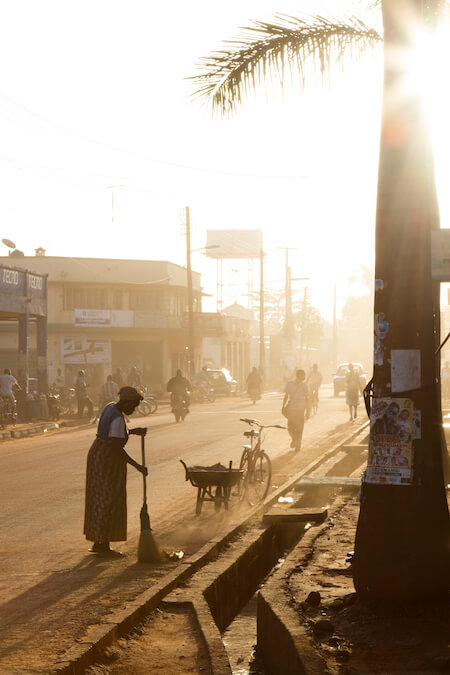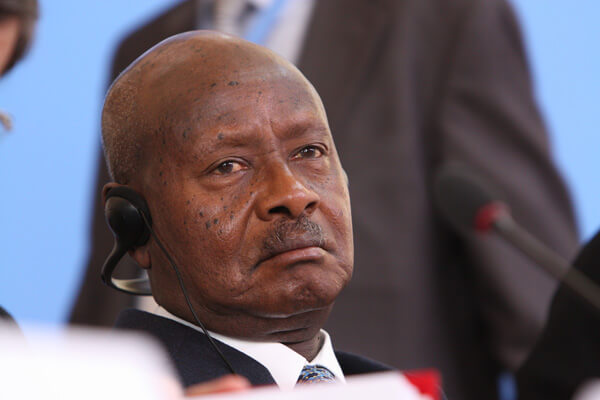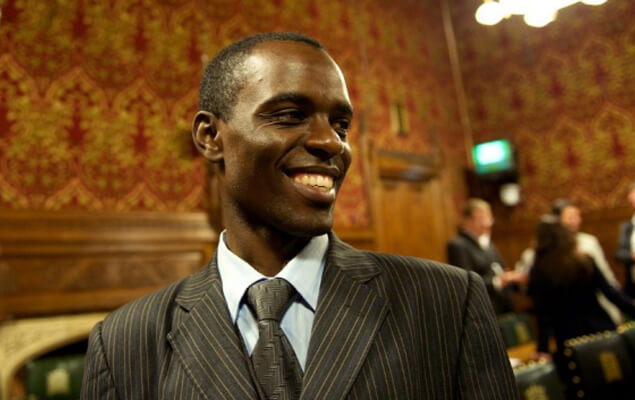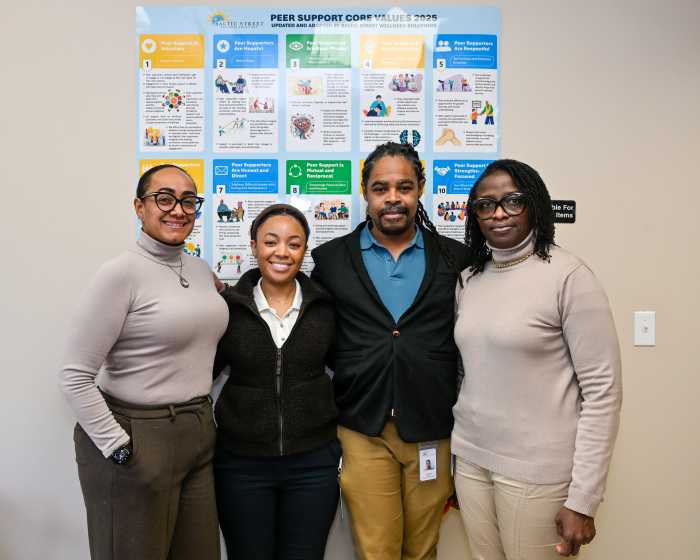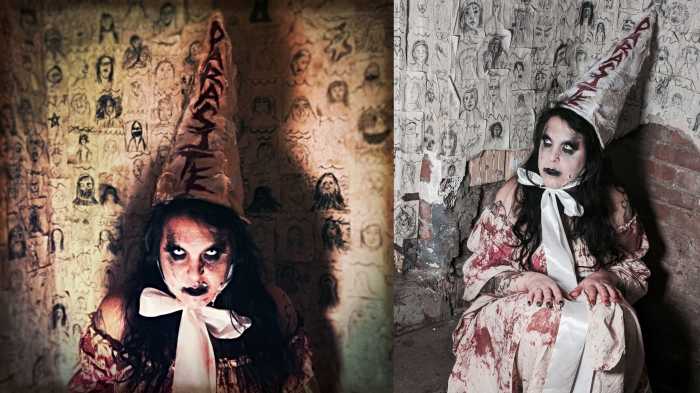PRINT COVER DESIGN BY MICHAEL SHIREY AND DANIEL SZYMCZYK
A week before leaving for Uganda on a photojournalism expedition, I took to the streets of Manhattan with my trusted camera, going up to strangers and asking them what they knew and thought about the East African nation. Kevin Bright, an artistic-looking man smoking a cigarette outside Boxers in Hell’s Kitchen, got to the heart of the issue on my mind.
“That’s where they’ve killed gay people before,” he said.
Like me, Bright was aware of recent, troubling news out of Uganda, which last year — thanks to the “activism” of a number of American evangelical Christians — passed the Uganda Anti-Homosexuality Act. In its earliest incarnations, that measure included a death penalty for what it defined as “aggravated homosexuality”; only as it moved toward final passage was life imprisonment substituted for the death penalty as the most severe sentence. A Ugandan court threw out the law on technical grounds, but the issue is still very much alive there.
Given that background, it was completely understandable when Kevin replied, “Hell no!,” when I asked if he would ever visit Uganda.
At bars in Kampala and an AIDS group in Gulu, an emerging LGBT community is visible
I had, of course, already made the opposite decision. Knowing there was a gay scene in Kampala, Uganda’s capital and largest city, I was determined to find it and learn from the people in it. So, at the end of a long first day of shooting in that city, I started off my evening browsing the local men on Grindr.
Kevin Bright outside Boxers in Hell’s Kitchen.| DANIEL SZYMCZYK
Grindr being what it is, an hour quickly passed, but I managed a connection with a man named Keith King, whom I met at a very relaxed bar where the customers included well-dressed Ugandans as well as other whites like myself. A few minutes into our drinks, I felt he and I had a lot in common. His voice is booming and his personality is one that demands attention; I could tell just how much of a wild child he is. Keith’s welcoming nature quickly began giving me insight into what it’s like being a gay man in one of the world’s most homophobic countries.
He explained that over the past several years as the homophobic climate heated up, many poorer gays had fled to refugee camps in Kenya. At the same time, for Ugandans of better means, a thriving gay nightlife existed. Talking about that contradiction, he showed off what might reasonably be called gallows humor.
Read Paul Schindler's accompanying profile of Frank Mugisha, head of Sexual Minorities Uganda.
“I sometimes even wish the bill was still in law!” he jokingly said. “Everyone who was in the closet came out during that time. They felt a need to take a stand. Now that the bill isn’t a thing anymore, all of them went back in the closet.”
That comment stopped me short. More men and women coming out of the closet when their lives could’ve easily been taken away by their own government? Before I had a chance to make sense of what he was telling me, Keith started to get calls from some buddies suggesting we meet them at another bar across town. Keith and I hopped on a boda, or motorcycle taxi, for the evening’s next phase.
Keith King having a good time out on the town in Kampala. | DANIEL SZYMCZYK
We arrived at a lively club filled with women in skin-tight dresses, men with designer jeans, and music ranging from Ugandan reggae to Ke$ha. Keith and I met up with his best friend, Isaac Mugisha, and a mutual friend of theirs whose name I agreed not to publish. I could soon see that Isaac, a bisexual gay rights activist who does HIV prevention work among men who have sex with men, had a very different personality from Keith. His chill, cool guy demeanor made him popular among just about everyone in the bar. It didn’t hurt that he’s very sexy.
The third man gave off a very different vibe from either Keith or Isaac. He was very attentive to what was going on in his surroundings, and whenever I spoke to him I sensed a paranoia in his voice.
Perhaps he had the courage to be out in public because of what he saw in Keith and Isaac. From their example, I could appreciate how LGBT people in Uganda need to trust each other for them to live their lives since their community is under attack almost on a daily basis.
Isaac Mugisha relaxing at my lodgings in Kampala. | DANIEL SZYMCZYK
Trying to grasp how they look at their world, I asked Isaac, “So if you can’t live how you want to live, why live at all, right?”
“Exactly,” he responded.
Keith, meanwhile, was reveling in the camaraderie.
“I’m the drunk, drag ass bitch!,” he yelled.
Just like it’s often been here in the decades since the LGBT community emerged visibly in cities across the US, it was clear that socializing and hard partying play an important role in bringing people together in Kampala. Trust is something you build while sharing drinks and cigarettes over the course of a long evening. The key is holding on to that trust outside the bar when push comes to shove on the streets.
A trip to northern Uganda gave me a chance to witness an emerging community in action.
My photojournal-ism took me to Gulu, the principal city in the north, where I planned a visit to the local branch of TASO, the AIDS Support Organisation. Walking around Gulu, I got a surprise cell phone call.
“Daniel!,” the voice on the other end said. “It’s Isaac! I’m at the TASO building in Gulu. Meet me here!”
Surprised but excited to learn that Isaac was in Gulu, I quickly made my way to the TASO building. Expecting to finding he was merely hanging out there, I soon learned Isaac had a mission at TASO.
Isaac Mugisha and Brant Lutswata speaking at the Gulu branch of TASO, the AIDS Support Organisation. | DANIEL SZYMCZYK
Isaac works with Spectrum Uganda Initiatives, which does HIV outreach and prevention work with gay and bisexual men. He and his fellow activist Brant Luswata, who works with a group called Icebreakers that runs a clinic, were visiting TASO to make a presentation to staff and board members about the basics of LGBT life — down to the fine points up being a bottom, a top, or verse.
“Our main point, however,” Isaac said, “is how our organizations can work with TASO throughout all of Uganda.”
TASO is a highly respected organization prominent in every main town in Uganda, and for Isaac and Brant the day was part of the early conversations about finding common cause with that group. It was certainly an act of faith and trust for the two men to push that discussion.
An ad promoting Christianity in downtown Kampala. | DANIEL SZYMCZYK
A few hours before my flight back home to New York, I was at Miki’s Pub in Kampala with my new friends. We were all laughing — first poking fun at American life and next wondering how one of our group got so blackout drunk in so short a time. As the hour for my departure approached, Keith pulled me aside and we spent some time alone. At one point, he suddenly started to break down a little bit. He worried that living in such a homophobic place, having to be on his guard 100 percent of the time, was pushing him past the point of caring.
Then he said, “I mean, ever since the bill, I’ve been willing to die for being myself.”
That blew my mind, but at the same time made perfect sense. Keith’s attitude, in the face of all the stress he endures, is what makes change happen. Isaac and Brant play a high visibility activist role. Isaac and Keith’s friend whose name I am not using is taking his first tentative steps out. And Keith is showing how despite cruel obstacles, gay Ugandans are willing to be out and proud.
Maybe I’ll find a different Uganda when I’m next able to visit.
An HIV treatment advertisement in Kampala. | DANIEL SZYMCZYK
Isaac Mugisha (far left) and Brant Lutswata (second from right) with officials from TASO. | DANIEL SZYMCZYK
Downtown Gulu. | DANIEL SZYMCZYK

